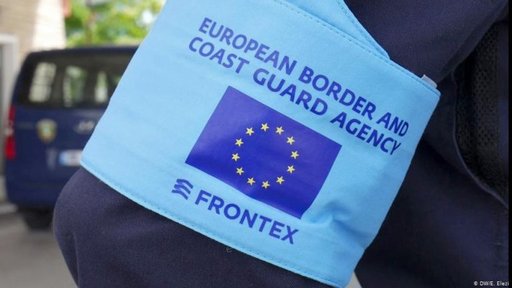On pushbacks – Giorgos Christides, Emmanuel Freudenthal, Steffen Lüdke und Maximilian Popp in Der Spiegel:
‘Jouma al-Badi thought he was safe when he first set foot on European soil on April 28. Together with 21 other refugees, he had been taken in a rubber dinghy from Turkey to the Greek island of Samos. The young Syrian planned to apply for political asylum. He documented his arrival in videos. Local residents also remember the refugees.
Greek security forces captured the migrants. Under international law, it is their duty to give the new arrivals a hearing and field their applications for asylum. Instead, according to al-Badi, the officers dragged them back out to sea and released them on an inflatable rubber raft. Videos obtained by DER SPIEGEL also show him on the raft.
For an entire night and a morning, Greek border guards kept pushing the men and women away as their raft floated around in circles. The Turkish coast guard filmed the maneuver.
An aircraft used by the European border protection agency Frontex also passed over the refugees. The crew of the surveillance plane, with the registration identifier "G-WKTH,” were part of a European Union operation in Greece. The plane twice flew over the Strait of Mykali, where al-Badi and the other migrants were located. According to flight data that has been viewed by DER SPIEGEL, the first flight happened at 2:41 a.m. and the second at 3:18 a.m.
The plane’s crew has a standard MX-15 camera on board with an infrared sensor and a sensor for poor lighting conditions. Even at night, the sensors are capable of detecting small objects on the water. According to a Frontex promotional video, the camera images are streamed live to Frontex headquarters in Warsaw, Poland. But Frontex didn’t send any help.’
(…)
‘Their research proves for the first time that Frontex officials know about the Greek border guards’ illegal practices – and that the agency itself is at times involved in the pushbacks. Breaking the law has become an everyday occurrence at Europe’s borders, and the EU is allowing it to happen.
Samira Mohammad could already see Lesbos when the men with the masks arrived. The Syrian woman, who does not want to provide her real name, is 45 years old. That morning of August 15, she was sitting in a rubber dinghy with dozens of other people. She recalls how Greek border guards tried in vain to stop the arrivals and how they steered toward the boat repeatedly and pushed it back toward Turkey multiple times. She says the Turkish coast guard held them off. Locals even have a name for the cynical game: "Greek water polo.”’
(…)
‘"These pushbacks violate the ban on collective expulsions and international maritime law,” says Dana Schmalz, an expert on international law at the Max Planck Institute in Heidelberg. She notes that if Frontex officials stopped a completely overcrowded inflatable boat, they would be required to rescue the people immediately. "If they don’t do that and even make waves instead, only to drive away and let the Greeks do the dirty work, then they are still involved in the illegal pushback,” she says.
Reporting by DER SPIEGEL and its partners found that a Frontex surveillance plane or Portuguese or Romanian Frontex ships were near at least six pushbacks in the area since April. The number of undetected cases could actually be much higher.
The vast majority of Frontex vessels patrol the Aegean Sea with their AIS transponders switched off or untraceable in order to prevent giving away their positions. Their presence can only be verified with difficulty through videos and photos.
When contacted for comment by DER SPIEGEL, Frontex did not deny the individual incidents, instead stating that the officials protected the fundamental rights of migrants and respected their right to non-refoulement. It further stated that the incidents that had been reported were forwarded to the Greek coast guard, which opened an investigation into the matter. The Greek government gave a blanket denial to the allegations, saying that it complies with the law and does not carry out illegal deportations.’
(…)
‘In an internal letter to a member of the European Parliament that DER SPIEGEL has viewed, Frontex head Fabrice Leggeri admits that his agency recorded a pushback from the air. The people had been placed in a rubber boat and were later rescued by the Turkish coast guard. In this case, too, international law expert Dana Schmalz argues that Frontex should have sent a nearby ship to rescue the refugees.
In the coming years, there are plans to further expand Frontex with more money and staff to support patrols at Europe’s borders. But Frontex’s complicity in crimes being committed in the Aegean Sea raise fresh doubts about whether the authority is suited to the task.’
Read the complete article here.
Solving the refugee problem by pushing back refugees, once again a crime against international law, is a sign that the moral standards of the EU are deteriorating. And also, the moral standards of a considerable part of the citizens of the EU who vote for parties that abuse the refugee problem in order to gain votes and that have no respect for international law and human dignity whatsoever.
More Frontex means more pushbacks.
When politicians talk about keeping the EU borders safe they mean also committing crimes against humanity.
